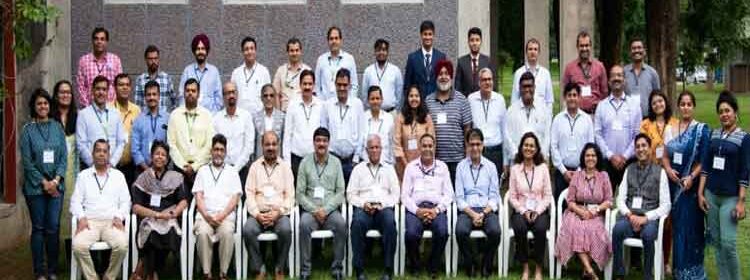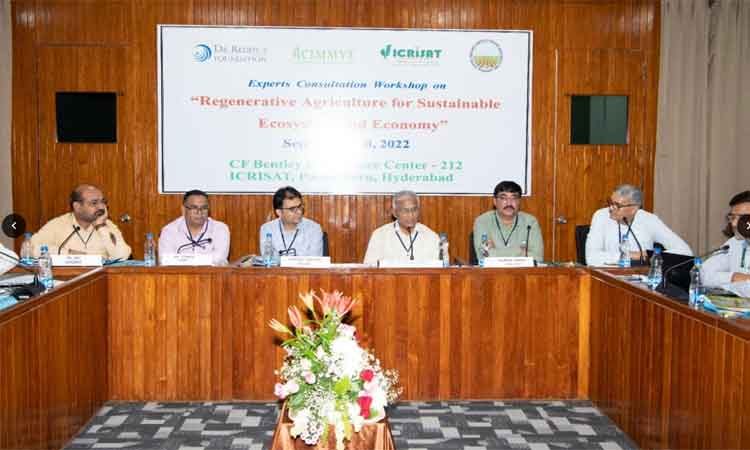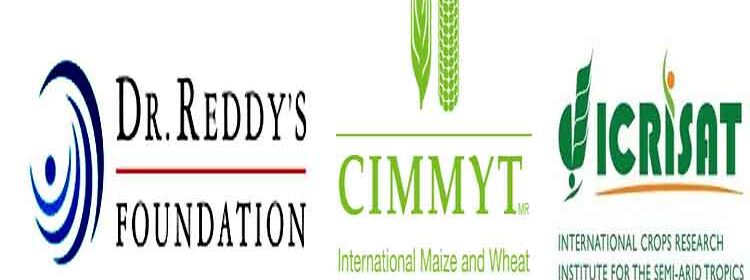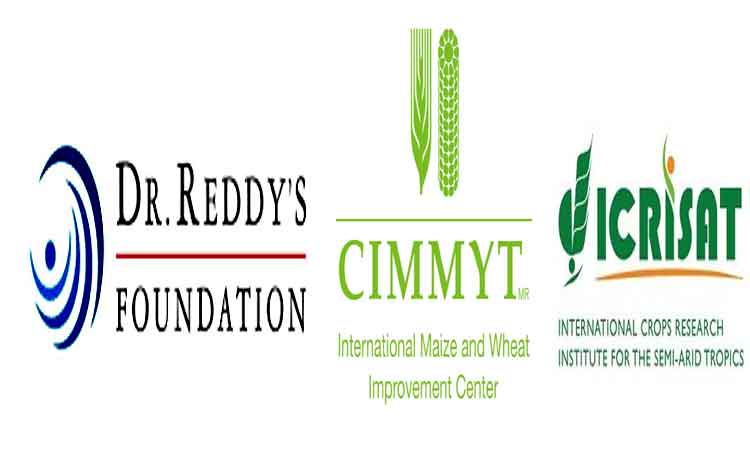Dr. Reddy’s Foundation in association with ICRISAT, CIMMYT and CRIDA jointly organised expert roundtable on ‘Regenerative Agriculture for Sustainable Ecosystem and Economy’

Dr. Reddy’s Foundation, International Crop Research Institute for Semi-Arid Tropics (ICRISAT), International Maize and Wheat Improvement Center (CIMMYT) and ICAR-Central Research Institute for Dryland Agriculture (CRIDA) successfully organised an expert roundtable on “Regenerative Agriculture for Sustainable Ecosystem and Economy” on 20th September 2022 at ICRISAT, Hyderabad. Dr. Reddy’s Foundation (DRF) was established in 1996 by Dr. Kallam Anji Reddy, a renowned scientist, entrepreneur and philanthropist and founder of Dr. Reddy’s Laboratories Limited. DRF aims to innovate for a better and sustainable future and is focused on enhancing the dignity and well-being of low-income groups.

The purpose of this event is to encourage experts to have an open dialogue where they can share their learnings and also elaborate on adaptation strategies and explore meaningful collaborations and partnerships. Delegates of the roundtable included: Dr. M L Jat, Global Research Program Director, RFFS, ICRISAT; Dr. Vinod Kumar Singh, Director, ICAR-CRIDA; Dr. Rajbir Singh, Director, ICAR – Agricultural Technology Application Research Institute (ATARI), and Dr. Mahesh Kumar Gathala Senior Scientist, CIMMYT among other distinguished scientists.
The event elaborated the need for scaling regenerative agriculture for food security and sustainable ecosystem. It also addressed the challenges of implementing regenerative agriculture especially by farmers with small and marginal land holdings. Agriculture scientists and practitioners discussed and shared methods, tools and technologies.
Some of the key takeaways of the roundtable included need for consensus building on implementation of regenerative agriculture (RA) for carbon credits, mapping opportunities for regenerative agriculture nationally and identifying new potential areas that can generate carbon credits. The roundtable also discussed the development of clear package of practices, framework and management protocols suited for different cropping systems encouraging regenerative agriculture, building community of practice (COP), implementing common Measurement, Reporting, and Verification (MRV) and uniformity in MRV mechanisms and neutral platform to enable tangible carbon credits to farmers. Development of a white paper was also discussed – policy with clear timelines of realizing carbon credits for farmers, evolving markets and demand for the improved quality of credits, strengthening of extension support system at national, state and regional level through whole farm analysis including livestock.

The roundtable further discussed identifying synergies and utilization of ongoing fellowship programs by the Government, incentivisation and support with financial motivation for farmers to work towards RA and adopt carbon farming, encouraging the utilisation of artificial intelligence/ remote sensing Modelling aspects for identification of soil organic carbon and forming of consortium to build partnerships & networks to share learnings, resources and encourage corporate support and investments through coalition at the national level (for policy and strategies) and at the local level to address regional recommendations and agro ecological needs.


